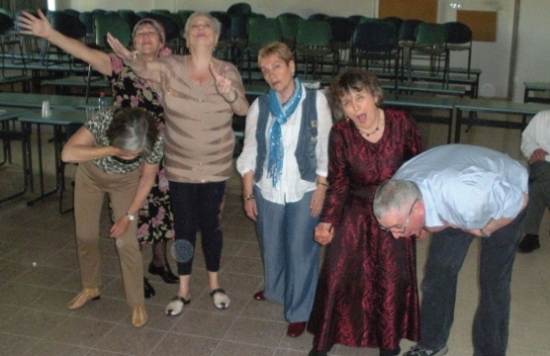
Okay my dear readers - off the record - just as I assumed that “playback” is the process of reproducing recorded sound so must you! But then one day I was asked if I would like to be part of a Playback group that was being formed in the Tel Hai Day Center for Retirees. There was a short explanation of what this was all about and with a theatrical background and a wish to do something new and challenging I was ready to learn more.
The original components of theatrical Playback began within the Playback Theater Company that was set up in 1975 by Jonathan Fox and Jo Salas and from which developed the use of the non-scripted theater for working within troubled communities. It was discovered and proved that improvisational theater, storytelling and psychodrama could be used to assist disturbed and troubled sectors of the community and so it spread – in over fifty countries world-wide use is now made of these practices. For example the Zakheni Arts Therapy Foundation in South Africa has used these methods to work successfully with troubled communities affected by trauma, poverty, HIV and conflict. Theater, dance, music and art are used as tools and provide platforms of healing. It has also been used in America for racial conflict and conciliation and in other countries to assist in dealing with those suffering as refugees trying to find a place within different societies. Here in Israel it was used with sectors of Russian immigrants as well as with the Ethiopian communities.
In 1993 to meet the demand for training which this level of growth had created, Jonathan Fox founded the School of Playback Theater which provides beginning, intermediate and advanced levels of training in Playback Theater. In 2006 focus turned to expanding the use of Playback into worldwide development. Schools for training Playback leaders now exist in Italy, Germany, Japan, Brazil as well as in Australia, the United Kingdom, Hungary, Hong Kong, Sweden and – of course – Israel and there are regular Playback gatherings and festivals in many of these countries as well as conferences on the use of Playback.
Although not primarily a therapeutic technique Playback Theater is adaptable for use by therapists who have had training in it. Those who make use of this method can gain insight and establish catharsis, connection and self-expression through members of the group telling their stories and taking part in enacting the stories of others.
Our group was set up with the intention of finding methods for older people to connect, to relieve themselves of inner burdens and also to show a cross section of public that life is certainly not over for those who are “over” a certain age. As is explained, Playback is an active approach that can extend the depth and breadth of inner experience which promotes shared ethics and values as well as being adaptable to the needs of diverse groups of all ages and from a variety of troubled backgrounds.
The leader (or conductor) of our group is Ronen Berger who established the Nature Therapy Center in Israel in 2002. Many successful and varied therapeutic and educational programs have been implemented by Ronen which assist in many sectors of our society especially with children. “Nature heals” is the belief and now also certain facets of Playback are being integrated into the process and used to assist with self expression.
So there we were – eight Golden Oldies all raring to learn about Playback, what it would mean to us and how we would use it. The basic approach is that one of the members tells a personal story that has touched his/her life – be it sad, frightening, exciting or even amusing. Then the group sets about performing their free interpretation of the story. It did take some hours of loosening up, getting to know one another and finding the strong and weak points of each of the participants but with the humor, understanding and encouragement of Ronen we began to find our way. We also learnt a lot about one another having heard life stories of people who had experienced trials and tribulations on their lifetime paths.
We were transported back to the forests of Hungary where a young daughter was trying to bring her mother back to consciousness after collapsing from stress and starvation when she was part of a group of refugees fleeing from the Nazis. We shared pain and joy with the outpouring of memories of family stress, romance, divorce and disease. Then one day we were confronted with Ronen’s decision that we were now good enough to appear in public. He was scheduled to lecture in a conference on “Social Changes and their Impact on the Arts” in ORT Netanya. Participants were coming not only from across Israel but also from abroad and we were to provide the closing act on the last day of the conference. Did we think we were ready? – not really but then perhaps it would be a challenge and maybe some fun! It proved to be both. After we presented ourselves in mime depicting our thoughts about trying to entertain the audience they were requested to come up on stage and tell a story for us to playback. The first story was told by one of the visitors in English – no problem – the playback would be in mime. It was about her beloved little dog which with no other choice she would have to leave with her grandmother whilst she went away on a studies course. Her grandmother had a fixation for cleanliness and so could not bear house pets but as she felt a greater responsibility to assist her granddaughter she agreed. The end of the story was that when the girl returned to collect the doggy Grandma had fallen in love and would not give her back!
There was immediate feedback and our gallant male member fell straight down on his knees sniffing and barking around our feet. Within seconds there were the student and the grandmama reacting to the little dog and so the story unfolded bringing much laughter and applause from the audience. The second story was one of the shortcomings of growing old and forgetfulness behind the wheel of a car which also went without a hitch – apart from the driver forgetting where she was to stop and let the passengers out. And that was it – cheers of appreciation from the audience and non-stop applause and we just could not believe that we had done it.
I can sincerely recommend the benefits of such a group because participants have the chance to tell what they need to tell in a context that is secure and others will listen and enact and thereby in many situations problems become easier to solve for those who are stressed and afraid.
-1372659501.jpg) Buying New Construction in Israel
Buying New Construction in Israel A lot of hot air - ballooning
A lot of hot air - ballooning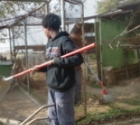 Birds of a Feather at Wing of Love
Birds of a Feather at Wing of Love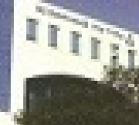 Yad Sarah's new house in Raanana
Yad Sarah's new house in Raanana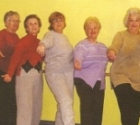 English speaking Feldenkreis
English speaking Feldenkreis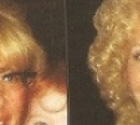 Men don't Make Passes at Girls who Wear Glasses
Men don't Make Passes at Girls who Wear Glasses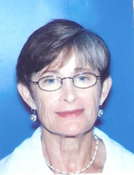 Barbara Abraham
Barbara Abraham